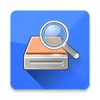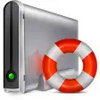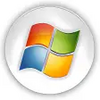Data recovery software for finding lost or deleted files
Data recovery software for finding lost or deleted files
Vote: (13 votes)
Program license: Free
Developer: DiskDigger
Version: 1.67.37.3271
Works under: Windows
Vote:
Program license
(13 votes)
Free
Developer
Version
DiskDigger
1.67.37.3271
Works under:
Windows
Pros
- Supports a wide range of file types
- No installation required; can run from a USB drive
- User-friendly interface
- Performs thorough scans for file recovery
- Ongoing improvements and updates
Cons
- Lacks an integrated search function
- Deep scans can be time-consuming on larger drives
A Lifeline for Lost Data: DiskDigger Reviewed
DiskDigger stands as a beacon of hope for anyone who has faced the unfortunate event of deleting files either accidentally or due to system errors. It is a recovery solution designed to dig deep into the various layers of hard drives and other storage devices to unearth and retrieve lost files.
Detailed File Recovery Capabilities
DiskDigger's main proposition is its ability to perform an exhaustive scan that meticulously searches for remnants of deleted files. While it is honest about not performing miracles—meaning it can't repair corrupted files—it compensates with a robust scan mechanism. Whether files have been deliberately erased or lost due to partition formatting, DiskDigger promises to recover what many assumed was gone for good.
Portable and User-Friendly Interface
One of the standout features of DiskDigger is its portability. The tool is a flexible ally since it does not necessitate installation. Users can run it directly from a USB drive, ensuring that the integrity of the search remains intact—leaving no digital footprint on the system where it is employed. This trait not only adds a layer of privacy to the recovery process but also ensures that it can be a lightweight companion to any system technician's toolkit.
The interface of DiskDigger is straightforward and navigating through the software is intuitive. Users select the desired file type and drive to scan, and the tool embarks on its quest to recover lost data. Despite its simplicity, users do sacrifice some conveniences, most notably the absence of an integrated search function—this means reviewing recovered files is a manual operation.
Comprehensive Support and Ongoing Improvements
A distinctive advantage of DiskDigger is its broad range of supported files. It can handle a variety from RED Video Camera videos (.R3D) and OpenDocument formats like Text (.ODT) and Presentations (.ODP), to graphic file types such as Windows Metafiles (.WMF) and Enhanced Metafiles (.EMF). The continuous support for new file formats and improvements to its scanning abilities, like enhanced .ZIP file recovery and better detection of FAT12 partitions, reflect a commitment to development and user needs.
Performance Considerations
Users should anticipate that the process time for scanning can hinge on numerous factors, such as the size of the hard drive and the type of scan—either a quick or an advanced deep scan. Consequently, searches on substantial HDDs can become lengthy endeavors; patience is required when you're digging deep for precious data.
Conclusion
DiskDigger stands out as a capable and versatile file recovery tool. The absence of a search function and potential long wait times during deep scans are small trade-offs when considering the software’s primary purpose: to provide a second chance at recovering lost or deleted files. With continued support and improved functionalities, DiskDigger is certainly a vital tool for those in need of data resurrection.
Pros
- Supports a wide range of file types
- No installation required; can run from a USB drive
- User-friendly interface
- Performs thorough scans for file recovery
- Ongoing improvements and updates
Cons
- Lacks an integrated search function
- Deep scans can be time-consuming on larger drives




